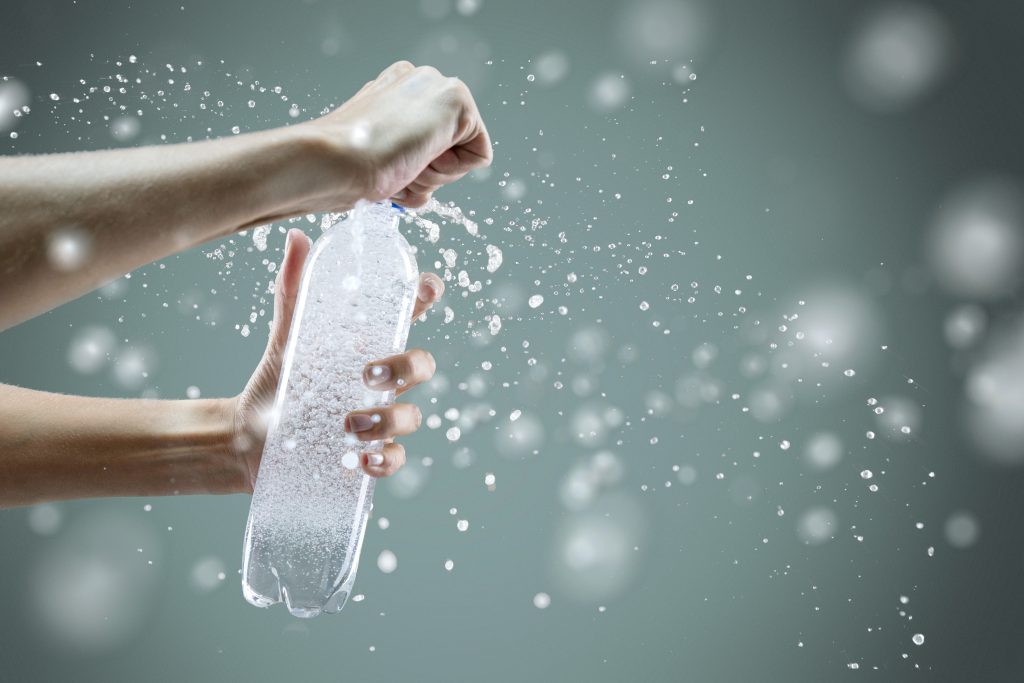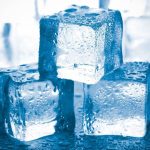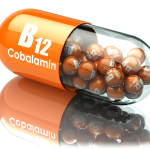By Nancy LeBrun
Bubbly water is more popular than ever, but is it good for you? Staying hydrated is an important element of health, but does the kind of water you drink matter? There has been some buzz about the health benefits and potential downsides of bubbly water.
Fizzy water can be a good alternative to sweetened beverages,1 but it may not be a good choice for everyone. This article explores what the experts have found about bubbly water and how it stacks up.
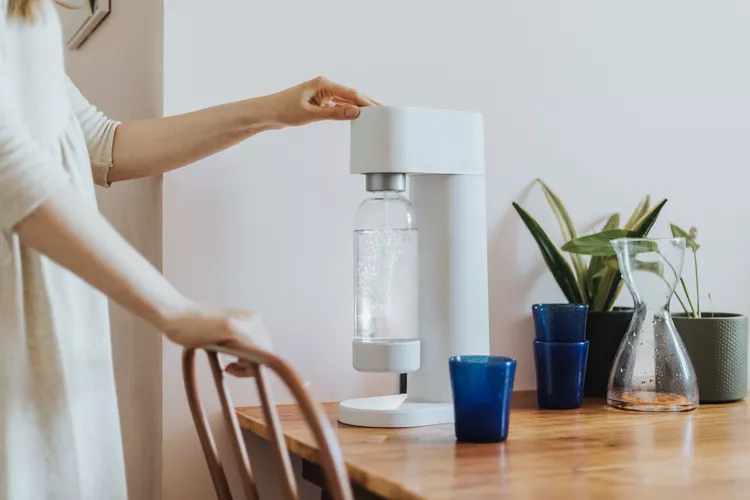
Potential Drawbacks of Bubbly Water: What Research Says
Bubbly water can occur naturally2 or be made by infusing carbon dioxide into water.3 Social media takes and urban myths have shared claims about the downsides of bubbly water, There’s a difference between simple carbonated water and bubbly water with flavorings, sugar, juices, and other additives.
Acidity of Bubbly Water
One belief that has spread online is that bubbly water is too acidic and that alkaline drinks may be better for you. Acidity is measured by pH, which ranges from 0 as the most acidic to 14 as the most alkaline. So the lower the number, the more acidic.
Pure water falls right in the middle with a pH of 7.4 But most of the water we use in our daily lives has a pH of between 5.5 and 8. Here’s what one 2013 study found about the typical acidity of different forms of water, including bubbly:
- Still bottled water: pH between 6.9 and 7.5
- Filtered and tap water: pH of around 7.5
- Bubbly water: pH between 4.9 and 5.5
Though bubbly water is slightly more acidic, there is little evidence to suggest that the acidity poses any health concerns.6 No matter what the pH level of what you eat or drink, your body keeps itself at a pH of slightly over 7. You breathe excess carbon dioxide out, or the kidneys pass it into your urine to maintain an acid-base balance.7
Effect on Dental Health
Does bubbly water erode the enamel on your teeth? The American Dental Association says that bubbly water does not appear to affect tooth enamel more than other types of water.8 One study did find that bubbly water could have an effect on your tooth enamel, but the majority of the evidence indicates that it is safe for teeth.9
An important factor in choosing a carbonated drink is whether it contains sugar, which interacts with bacteria in your mouth, creating acid that can damage enamel.10
Effect on Digestion
Bubbly water may help you digest food more easily because it hydrates you, which is important for good digestion. The bubbles make some people belch, which could help soothe a gassy stomach.11
Other people might find that bubbly water can make them feel bloated and more, rather than less, gassy. If you use a straw to sip carbonated (or non-carbonated) drinks, you tend to inhale more air, which can also contribute to bloating.12
One study showed that carbon dioxide increased what is known as the “hunger hormone” ghrelin in rats, stimulating appetite, but the evidence is insufficient to establish that it would affect humans in the same way.13
Effect on Bone Health
If you’re drinking clear bubbly water and not a dark bubbly soda, it won’t affect your bone density, according to a 2006 study.14 Dark colas contain phosphate, which may prevent calcium from being absorbed into your bones, though the evidence is not conclusive.15
Some bubbly waters, like mineral water, contain calcium, which is necessary for good bone health. Others may contain magnesium, which is also good for your bones.16
EXERCISES FOR OVERWEIGHT | OBESE PEOPLE. SET NO. 1: GENERAL EXERCISES TO STRENGTHEN MUSCLES AND IMPROVE JOINT MOBILITY
Who Might Limit Bubbly Water?
Bubbly water can have negative effects on some people with certain digestive health concerns. However, it is often individualized and may not affect other people with the same condition. Conditions include:
- Gastroesophageal reflux disease (GERD, a condition of chronic acid reflux)17
- Bloating12
You can also try to limit it to an occasional bubbly beverage and choose non-carbonated water at other times.
EXERCISES FOR OVERWEIGHT/OBESE PEOPLE. SET NO. 2: POWER EXERCISES WITH A GYMNASTIC ELASTIC BAND/TERABAND
What’s in Bubbly Water?
Bubbly water goes by many different names, including:
- Mineral water
- Club soda
- Seltzer
- Sparkling water
Unflavored bubbly water can come from naturally occurring wells or springs that contain minerals like sodium or calcium, or manufacturers can add carbon dioxide to still spring water or tap water.2 Unflavored bubbly water may also have minerals, salts, or both added to it.
Flavored bubbly waters may contain caffeine, citric acid, sugar, artificial sweeteners, and other ingredients or chemical additives. Read the label to check for calories, sugar, sodium, artificial sweeteners, flavorings, or preservatives.
Tonic water, often used as a mixer with alcoholic drinks, is not generally considered bubbly water, but it is water and it does have bubbles. It also contains quinine, which was used in the mid-nineteenth century as a digestive aid and later as a treatment for malaria—hence the name “tonic.”18
Manufacturers may add sugar to tonic water to counteract the bitterness of the quinine.
EXERCISES FOR OVERWEIGHT/OBESE PEOPLE. SET NO. 3: POWER EXERCISES WITH DUMBBELLS. WEIGHT IS SELECTED INDIVIDUALLY. IT IS RECOMMENDED TO START WITH 1-2 KG
Benefits of Bubbly Water
Bubbly water can hydrate you, just like still water, and hydration is essential to health and healthy functioning. Choosing bubbly water without added sugar or other ingredients can be a refreshing change from sweetened beverages like sodas or energy drinks.
Staying hydrated may help you lose weight by reducing your appetite, boosting your metabolism, and making your body more efficient when you exercise.19 An older study found some evidence that the bubbles themselves can help you feel full.20
In one older study that compared hydration levels in people, the subjects drank either a liter (a little more than a quart) of still water, sparkling water, or another beverage. Four hours later, their urine output showed that carbonated water was just as hydrating as still water.21
There is also some limited evidence that bubbly water can help people who have trouble swallowing, though more study is needed.2
EXERCISES FOR OVERWEIGHT/OBESE PEOPLE. HYDROTHERAPY MODULE: SWIMMING AND HYDROTHERAPY, EXERCISES IN THE WATER
Best Ways to Enjoy Bubbly Water
Bubbly water is fine for most people to drink every day, as long as they don’t notice any bloating or gas, and if it doesn’t contain sugar or other additives that may not be healthful.
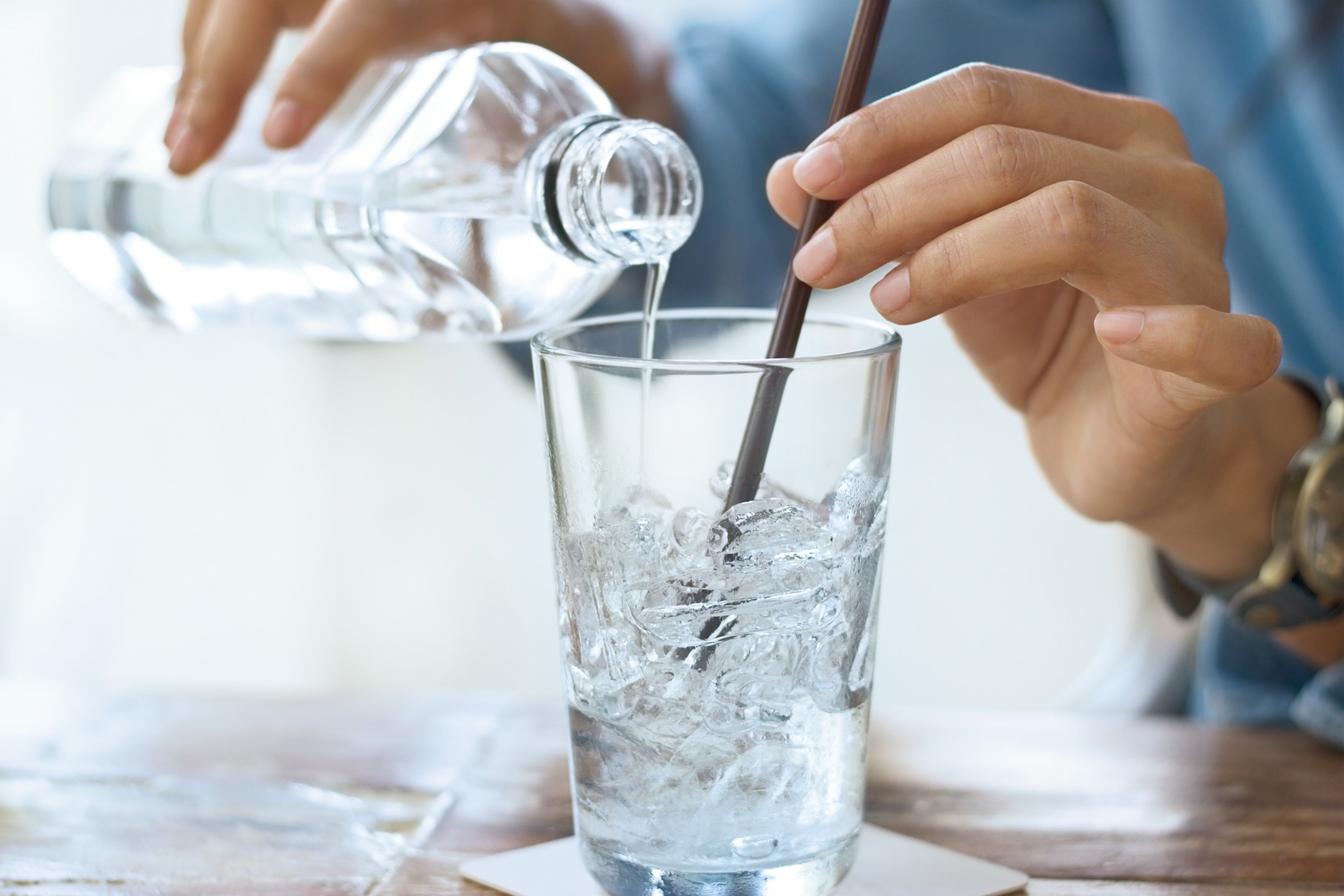
Home carbonation devices make it easy to turn still water into bubbly water. You can transform tap water, mineral water, filtered water, or spring water.
Bubbly water can be very refreshing on its own, but if you want to kick it up a notch, you can add a little fresh-cut fruit or freshly pressed fruit juice. You can even add flavored ice cubes or edible flowers to make it festive.
Bubbly water is a great base for any mocktail (nonalcoholic cocktail) when you want to avoid alcohol and have an enjoyable drink when you’re socializing.
LeBrun is a Maryland-based freelance writer and award-winning documentary producer with a bachelor’s degree in communications.

DEMO VERSION OF GRS WORKOUTS FOR REHABILITATION OF PATIENTS with obesity ON YOUTUBE
Our website presents sets of exercises for the rehabilitation of the patients with obesity in the following areas:
-
EXERCISES FOR OVERWEIGHT/OBESE PEOPLE. SET NO. 1: GENERAL EXERCISES TO STRENGTHEN MUSCLES AND IMPROVE JOINT MOBILITY
-
EXERCISES FOR OVERWEIGHT/OBESE PEOPLE. SET NO. 2: POWER EXERCISES WITH A GYMNASTIC ELASTIC BAND/TERABAND
-
EXERCISES FOR OVERWEIGHT/OBESE PEOPLE. SET NO. 3: POWER EXERCISES WITH DUMBBELLS. WEIGHT IS SELECTED INDIVIDUALLY. IT IS RECOMMENDED TO START WITH 1-2 KG
-
EXERCISES FOR OVERWEIGHT/OBESE PEOPLE. HYDROTHERAPY MODULE: SWIMMING AND HYDROTHERAPY, EXERCISES IN THE WATER
Summary
Bubbly water is a very popular drink, but it gained an undeserved reputation for potentially harming your teeth, bones, or digestion.
As long as the bubbly water is free of sugar and other additives that may be unhealthy, research has shown that it’s a good choice for staying hydrated while enjoying a refreshing drink. Unless it makes you feel bloated or gassy, or triggers acid reflux, bubbly water is a healthy choice.

